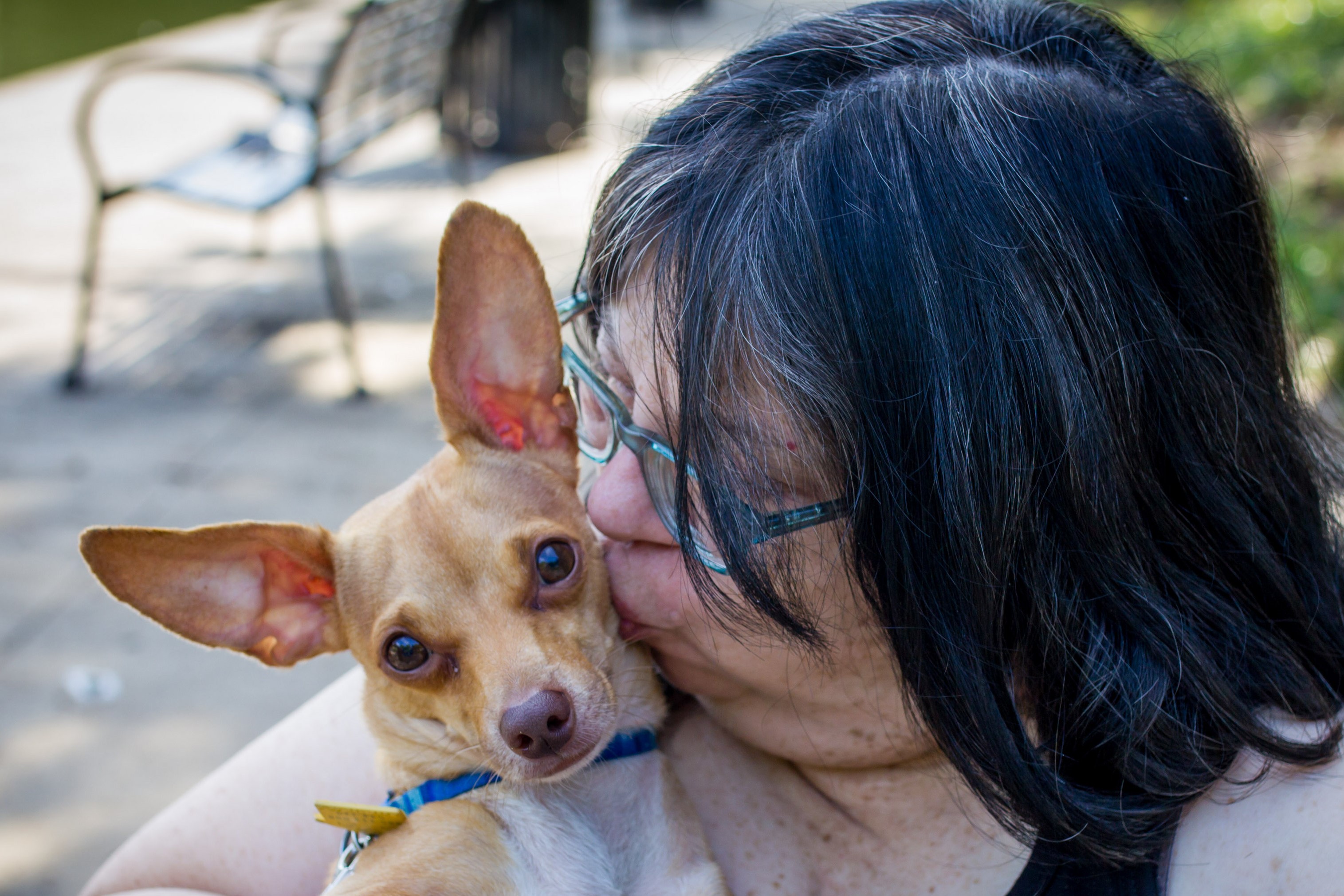
What’s more comforting than a cat curled up with you after a tiresome day? Or an energetic puppy bounding around the house, its little tail wagging and its pink tongue hanging out its mouth? Not much, many pet owners will say. Pets can bring joy and comfort into any home, and this is especially true for men and women who struggle with severe mental illnesses.
“He goes everywhere I go,” says Angel when sharing about her Chihuahua, Peppy. Angel, who has been a member of The Well for several years, describes her constant companion as “cute and affectionate.” Peppy likes to sleep in her lap, and she sees him enjoy the treats and toys she gives him. He’s a friend to Angel when many of her other relationships are hard to maintain.
People living with mental illnesses, like the members of The Well, often find themselves alienated from other people. They tend to spend a lot of time alone because their mental health challenges make it difficult for them to have intricate conversations and maintain healthy relationships. Animals, however, don’t require complex communication and they offer a kind of affection and love amid the isolation. As a result, pets can help those with living mental illnesses combat the pain and loneliness of their disorders.
 This isn’t just hearsay. More and more psychologists and researchers are finding scientific evidence of the therapeutic benefits of pet ownership for those with mental illnesses. A 2016 study published in BMC Psychiatry found that caring for a cat, dog or other animal can help people living with mental health challenges in a multitude of ways. Dr. Helen Brooks from the University of Manchester, the lead author of the study, explained, “The people we spoke to through the course of this study felt their pet played a range of positive roles such as helping them to manage stigma associated with their mental health by providing acceptance without judgment.”
This isn’t just hearsay. More and more psychologists and researchers are finding scientific evidence of the therapeutic benefits of pet ownership for those with mental illnesses. A 2016 study published in BMC Psychiatry found that caring for a cat, dog or other animal can help people living with mental health challenges in a multitude of ways. Dr. Helen Brooks from the University of Manchester, the lead author of the study, explained, “The people we spoke to through the course of this study felt their pet played a range of positive roles such as helping them to manage stigma associated with their mental health by providing acceptance without judgment.”
These positive roles included providing relief from isolation, helping their owners develop and maintain healthy routines and offering a sense of purpose, especially for those who aren’t able to hold a job due to their illness. Pets also distract their owners from disturbing symptoms such as hearing voices or obsessive thoughts, as well as lift their owners’ moods and lower their stress.
Well member Lyndon smiles widely when he talks about his new puppy, another Chihuahua named Bowser. He’s ecstatic and eager to share. He opens his phone and scrolls through photos of the puppy chewing on a raggedy toy in his apartment. Bowser is three months old, with floppy ears and tiny paws. “He plays too much,” laughs Lyndon. “He chews on my pillow. He sleeps on my shoulder.” For Lyndon, Bowser is a constant—if sometimes silly—friend.

Interacting with animals—even others’ pets—can bring a wealth of benefits for those who struggle with mental health issues. Well member Rita enjoys helping take care of her nephew’s two bulldogs. She visits them often, and feeding and walking them are the highlights of her week.
Many members of The Well like Angel, Rita and Lyndon battle severe mental illnesses like bipolar disorder and schizophrenia. The stability, comfort and friendship offered by their pets bring comfort to what is often a challenging, painful and isolated life.
Would you like to be a friend of The Well?
Of course, human interaction is also a critical part of recovery for Well members. Volunteering at The Well is a small commitment that has a great impact on the lives of those who deal with mental illness in Oak Cliff. We are always looking for new volunteers to help serve at Thursday Night Life or our other events. Think you might be interested? Don’t hesitate to call or email! We would love to answer your questions and find the best place for you to use your unique gifts.
